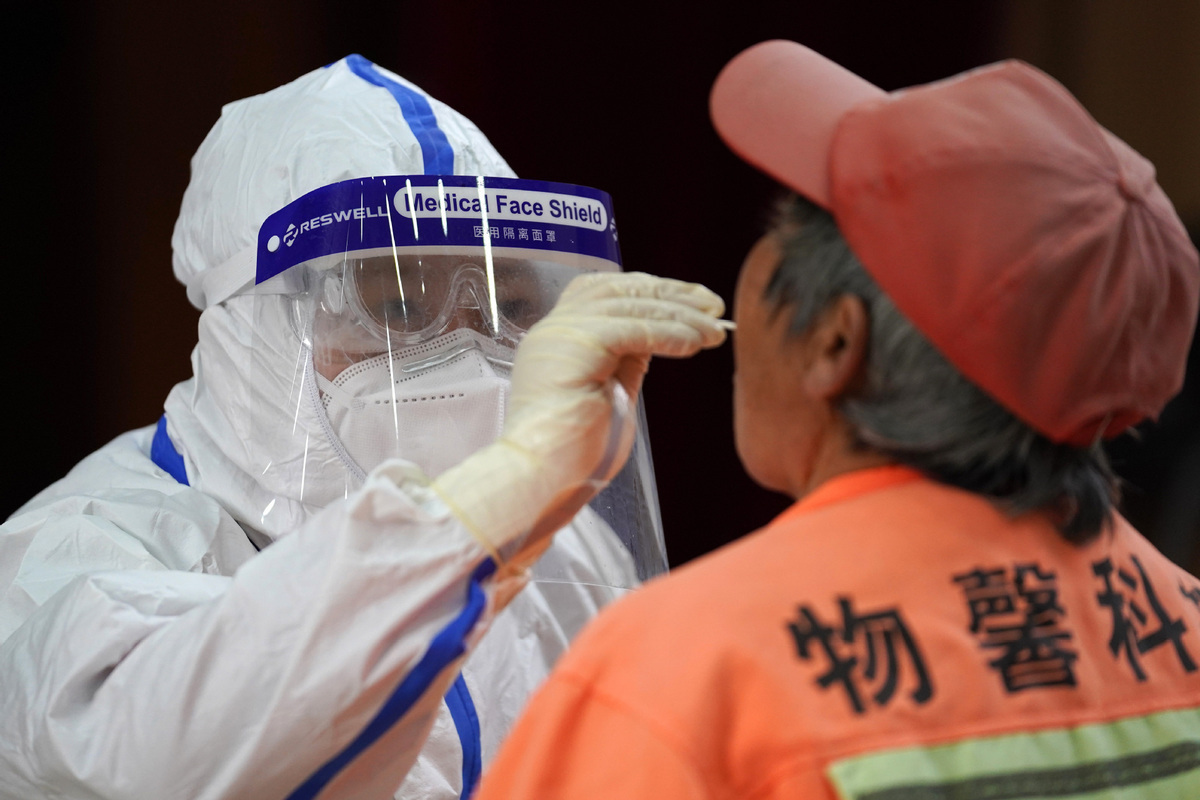
A medical worker collects a throat swab from a woman at a nucleic acid test site in Shunyi district of Beijing, on Dec 28, 2020. [Photo/Xinhua]
China is sticking to more selective and less invasive measures that have kept the virus spread in check without hurting the country's economic recovery and people's livelihoods, said a recent report by the Wall Street Journal.
"There will be increased personnel flow and gathering, and the prevention and control of the epidemic will face a major test," top Beijing municipal officials said last week, referring to the coming Lunar New Year holiday, which is set to begin Feb 12, the report said.
Although Beijing recently tightened some of its rules around COVID-19, the municipal government has cautioned they should only be implemented with "appropriate stringency," with most of the measures remaining voluntary and only minimally disruptive to the daily lives of the majority of citizens.
Schools and kindergartens have remained open, for example, though mandatory temperature checks and mask-wearing have been reintroduced. Residential compounds in Shunyi, the suburban district of Beijing most affected by the latest wave of infections, have been asked to set up checkpoints to control the flow of residents and visitors. Parks, museums and other public venues including restaurants and shopping malls are also being asked to limit the number of customers, the WSJ reported.
Rather than prohibit people from celebrating the coming holiday, Beijing's government has appealed to residents to voluntarily reduce private gatherings and unnecessary travel. Government-backed companies and work units were advised to allow their employees to take staggered vacations around the festival, so as to prevent the simultaneous mass movement of hundreds of millions of people, who traditionally travel at the beginning of the holiday, either to see family at home or take a vacation, according to the report.
Top Chinese officials have repeatedly stressed the importance of balancing pandemic prevention and control measures with the need to minimize the impact on the economy and people's daily lives.
China's economy ground virtually to a halt in the first quarter of 2020, with the country's gross domestic product contracting by 6.8 percent from a year earlier—the biggest such pullback in some four decades. But after the coronavirus was largely brought under control in the spring, China's economy has for the most part bounced back, positioning the country to be the only major world economy to grow during this pandemic-hit year, the report said.
Since imposing a strict 76-day lockdown on the central Chinese city of Wuhan and surrounding Hubei province, Chinese officials have been gradually fine-tuning pandemic control measures.
When a new cluster re-emerged in Wuhan in late May, local officials tested more than 9 million of the city's residents in 10 days, but didn't seal it off from the outside world.
After Beijing discovered new cases in a wholesale market in June, the capital was carved up into three emergency tiers and only a limited number of residential compounds were entirely closed off. More than half the city's residents were tested and most businesses were allowed to stay open, said the report.


